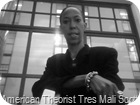 ®TMSC’s International Diplomatic Communication Skills are the first step and a key component in international training and leadership. What countries communicate to one another establishes the relationship and tone of interaction throughout any process, event, or training. The more amiable the countries, the better the relationship and smoother the processes are. ®TMSC’s International Communication Skills:
®TMSC’s International Diplomatic Communication Skills are the first step and a key component in international training and leadership. What countries communicate to one another establishes the relationship and tone of interaction throughout any process, event, or training. The more amiable the countries, the better the relationship and smoother the processes are. ®TMSC’s International Communication Skills:
- “What Happened?” Discuss and explain the situation.
- What do you thing/feel about the situation?
- How does the situation affect your country?
- How does the situation effect the international community?
- What are the simplest solutions to the problem?
- What are the most complex solutions to the problem?*
*The more complex the solution the more likely supervision or limited supervision will occur.

